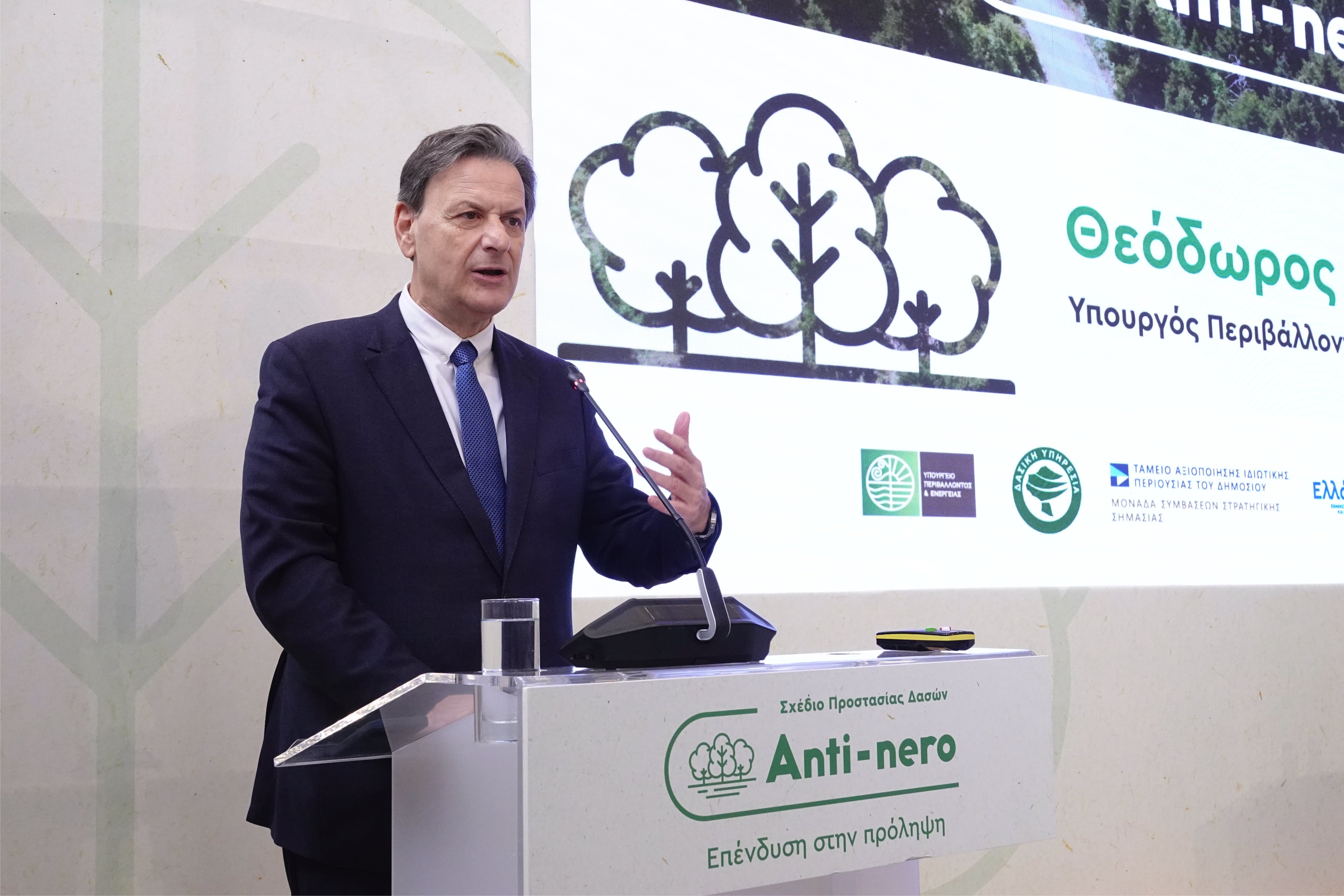There is “clear support from the United States” for the Great Sea Interconnector, which is set to link the electricity grids of Cyprus, Greece, and Israel, Greek Energy Minister Theodoros Skylakakis said on Wednesday.
Speaking at an intergovernmental summit between Greece and Cyprus, he said his country is now at the “epicentre of various interconnections”, and pointed out that Greece has already connected its mainland grid with Albania, Bulgaria, Italy, North Macedonia, and Turkey.
Additionally, he said, a “green interconnection for the transfer of wind energy” between Greece and Egypt is already being considered.
He added that within Greece, efforts are being made to connect the mainland grid to the country’s many islands, and that the interconnector cable connecting the island of Crete to the mainland is nearing completion, while interconnection projects in the Cyclades islands and the Dodecanese islands are ongoing.
It is Crete which will be connected to Cyprus via the Great Sea Interconnector, with Cypriot Energy Minister George Papanastasiou pointing out that when the cable is complete, Cyprus will as a result be connected to Europe’s electricity grid. This, he said, is “the European Union’s goal”.
Papanastasiou also described the project as one which also has a “geopolitical” nature, given that it has been partially subsidised by the European Commission.
To this end, Skylakakis said the project now has a “regular cash flow” and that cables have begun to be laid off the coast of Crete. He added his hope that with the Cypriot government set to become a stakeholder in the project, it will “be able to attract the interest of important international investors”.
On this point, Papanastasiou acknowledged the “technical, geopolitical, and financial risks” of the project, but said the geopolitical risks can be “managed through diplomacy, operational monitoring, and financial alliances with investors from major countries”.
He was then asked whether the Cypriot government will buy into the project, and said, “the political decision is that the project is supported and that the final investment will be made after the completion of the study”, with a cost-benefit analysis having been submitted and now going under his ministry’s microscope.
Skylakakis said the project will be “more beneficial for the Cypriot consumer, as for Greece, it will contribute more to the stability of the system and the possibility of dispersing renewable energy potential into the wider region”.
“The project is important politically, geopolitically, and in terms of energy for Cyprus and the wider region,” he added.
Cyprus has long been weighing up its options on the matter of whether or not it will buy in to the project’s holding company, with Greece’s independent power transmission operator Admie, a 51 per cent stakeholder, having requested the Cypriot government pay €100 million to buy in.
On that matter, the Cypriot government has demanded access to a cost-benefit analysis and the time to evaluate it before coming to a final decision, George Panteli, the finance ministry’s then permanent secretary, had said in September Cyprus’ authorities have not yet seen the project’s financing plan.
He said his ministry is at present “not in a position to put forth” any concrete statement regarding the project’s risks, neither from a geopolitical standpoint, nor regarding the potential impacts of the project on Cyprus’ economy and energy market.
This is the case, he said, due to “the absence of decisions and studies which have not been completed”, as well as “regulatory decisions which have not been finalised” over the matter.
In addition, he said the government was not given access to the interconnector’s financing plan and was not privy to the details of Admie’s agreements with technology companies Nexans and Siemens for the manufacture of the interconnector’s cable and voltage convertors.
The wait for a decision had irked Skylakakis earlier in the year. He had said in April that Cyprus may miss deadlines should it delay a decision on the matter, and pointed to the European Commission’s financial support for the plan under its Connecting Europe Facility, and an extra €100m pledged through the European Union’s Recovery and Resilience Facility.
“The case is that we took on a serious responsibility together with the Cypriot side, after the Commission had evaluated the project and had given us a huge investment in this project. If this investment is lost, the chance of Cyprus being connected to the rest of Europe, and of the entire cable being realised, will be dramatically reduced,” he said.
He added, “that is something which the Cypriot government will also have to evaluate.”
He went on to say that his government’s responsibility is to protect Greek consumers and taxpayers, and seemed to indicate that his government’s patience may be running out with Cyprus.
He However, he made indications that he will not be willing to wait for ever for Cyprus to come to a decision, saying “our final analysis will be based on our most important responsibility – to the Greek consumers and taxpayers.”
“For Greece, this project is positive as it facilitates a balancing of our electricity network, but it is not a critical project. Greece is not an island, in energy terms,” he added.
Therefore, he said, “for Greece, the important part from our point of view is of course for the project to come to fruition, but to look out for the interests of the Greek people first.”
said Greece “has shown a surplus of good will on this matter to help to try to not lose this project,” and emphasised again the possibility that the whole project may fall apart if Cyprus does not make a decision.







Click here to change your cookie preferences